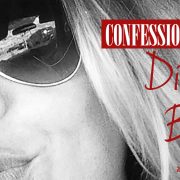Building suspense the WRONG way
Then she said, “But I don’t want to tell the reader the guy’s an ex-con. I want her to figure it out.”
“Why?” I said.
“Because I want to build suspense.”
“But why do you want to hold back that specific piece of information? How does doing that move your story forward? How will the reader figure it out?”
“Well, I hint at it in later chapters. . . I don’t know. I just don’t want to tell the reader everything. I mean, I work hard to come up with these stories. Shouldn’t they work hard to read?”
And there it is.
Writing a book – writing anything – is hard, hard work. We bust our asses to come up with the words, turns of phrase, eloquent transitions and killer hooks. Why shouldn’t readers work hard too?
 Well, because they won’t. It’s really that simple.
Well, because they won’t. It’s really that simple.
Instead, they’ll put your book down and grab something else that gives them the mental vacation they seek. Readers want to be swept away, lost in another world – entertained, goddammit.
If they read half of your book and don’t understand why Steve has to get to the top of the mountain . . .
Or why the doctor poisons his patient . . .
Or why Sally gave up her baby . . .
They aren’t going to stick around to figure it out.
You can argue the unfairness of it all day long. It won’t matter.
Writing that holds critical information back confuses the reader. Words that reveal more, paradoxically, also draw your reader in more.
Want to build suspense? Tell your reader and NOT your characters. Think about watching a scary movie. Are you yelling at the screen, “Don’t go in there!” when the actress is heading into the room with the psycho? Yeah. Because you already KNOW he’s in there.
So what’s the cure?
I often talk about writing as though you’re chatting with your best friend. When you do that, your words become more intimate and revealing, friendlier. You lose the stuffy bullshit and big words. You become more genuine – more you. You’re also more helpful.
We don’t use big words to impress our friends. We have casual conversations meant to communicate clearly. Your books should deliver their message the same way. Don’t make the reader guess.
Writing to a friend makes it about that friend, not about you as the author. The result is the reader is better able to follow your plot, understand your meaning and care about what you’re saying.
It’s our job as writers to show readers where we are going and why they should care. The easier your story is to understand, the more engaging and entertaining it becomes. And that is the point of telling the damn story.
***
Want tolearn more about writing like YOU? I’m polishing a new product that will teach you exactly that. Join our subscriber list (upper right-hand corner) to hear more about it and get a discount when it’s released.







It is hard to pull together a book, but even harder to keep the reader engaged–my second book I saw a man and a woman in a hotel room, there was this tension but most of all they still loved each other. I had to learn about them–so even though it is your story, you are meeting new people, and you want to know everything about them. Perhaps that is another way to look at it.
Renee
Readers are reading for fun. As soon as it feels like hard work, they’ll stop. They’ll read to find out somethng – if it’s important, and they care. So that ‘something’ can’t be arbitrary, and it can’t be something that affects the understanding of the story as a whole, because no one cares about an incomprehensible story.
Amen, sister.
It’s also possible that if the whole plot is made to hang on just the one detail you haven’t revealed, when the reader gets to it (if they haven’t abandoned it before) they’ll feel cheated.
I still think it depends on the plot–but what Becky stated is true, that is a poor way to build suspense. One of my most beloved professors wanted us to do a tension scene…everyone did ghost stories, killed someone or something common. I was the only one to build a different type of suspense. She commanded me on doing something different but also building suspense.
what you describe seems to be a less-is-more approach, an underpinning of good communication.
NOT true. You don’t have to reveal things right away. Work can be fun. Making the reader work at things a little makes them feel involved. Keep them guessing.
I do think that if you want the reader to try and figure things out, you have to make them WANT to try and figure things out. They have to be curious. They have to know that the information which they don’t have is important, and you have to make them want it. And you have to make them trust you enough that they’re sure that the answer is there somewhere, and they’ll find out eventually. And in the meanwhile the story still has to be coherent. You do have to use your judgement. But I don’t agree with this post at all.
Differing opinions make the world go round. Thanks for stopping by and adding yours 🙂
Still I think unless it addressed in between characteristic and plot, it would be a poor of building suspense. Something has to be mentioned before hand. I was always taught that a story is a promise, you must carry out that promise through out the rest of book…if you come up short then the reader would feel cheated.